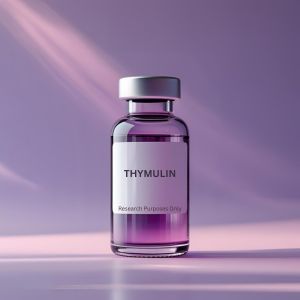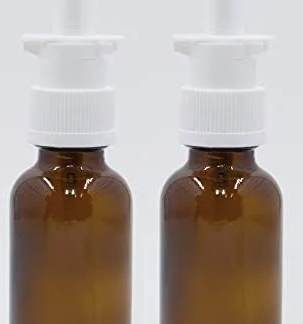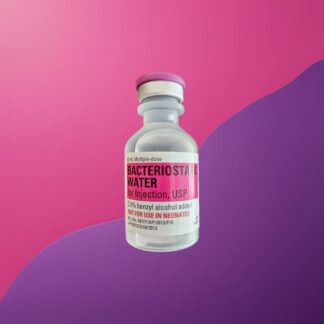Free shipping on orders over $250
THYMULIN
$25.00
THYMULIN 10mg
Thymulin, a hormone produced naturally by the thymus gland, is primarily known for its role in regulating the immune system. It assists in the maturation and differentiation of T-cells and influences overall immune function. While research is ongoing, potential benefits of thymulin and its synthetic variants include immune support, anti-inflammatory effects, and anti-aging properties.
Important Notices:
- This product is sold for scientific research purposes only.
- Product is provided as a lyophilized (freeze-dried) powder in a sealed, sterile vial.
- The quantity on the label refers to the total amount of product inside each vial.
- Additional lab supplies are required for conducting research such as bacteriostatic water for reconstitution, syringes & needles to draw from the vials, and alcohol prep pads for sanitizing vial stoppers prior to needle insertion. These are sold separately.
- Vial appearance, label, seal and cap colors may vary from product photos.
3 in stock
Description
THYMULIN research suggests the following potential benefits:
IMMUNE SYSTEM: Thymulin’s main function is to help regulate the immune system. This makes it a target for managing various immune-related health concerns.
-
- Boosts T-cell and NK-cell function: Thymulin helps immature lymphocytes mature into functional T-cells and enhances the cytotoxic activity of natural killer (NK) cells. This helps the body respond effectively to infections and abnormal cells.
- Regulates immune balance: By helping to regulate the different components of the immune system, thymulin helps create a finely tuned defense against pathogens. It helps balance the activity of T-helper cells, which fight viral infections, and T-suppressor cells, which regulate autoimmune conditions.
- Counteracts immunosenescence: As the thymus gland shrinks with age, its production of thymulin declines, contributing to a weakened immune system. Synthetic versions of thymulin may help restore immune function in older adults.
Anti-inflammatory and pain-relieving effects
Research, including animal studies, has highlighted thymulin’s potential to reduce inflammation and related pain.
- Inhibits pro-inflammatory cytokines: Studies indicate that thymulin has a broad inhibitory effect on pro-inflammatory cytokines like TNF-alpha.
- Downregulates inflammatory signals: In the central nervous system, thymulin and its analogs have demonstrated anti-inflammatory and neuroprotective effects by downregulating specific inflammatory signals.
- Offers analgesic properties: A synthetic analog of thymulin, PAT, has been shown in animal studies to have analgesic (pain-relieving) and anti-inflammatory effects that are comparable to or more potent than other drugs.
Neuroendocrine effects
Thymulin is considered a neuroendocrine hormone, meaning it influences and is influenced by the nervous and endocrine systems. This includes interactions with the hypothalamus-pituitary axis. This function is particularly relevant during early life, but also suggests a role in the body’s response to stress throughout life.
Anti-aging properties
Due to its regulatory role in the immune system, thymulin may contribute to healthy aging. The age-related decline in thymulin production is thought to be linked to immunosenescence, or the aging of the immune system. By boosting immune function, thymulin may help counteract some age-related issues. Some cosmetic products also use biomimetic peptides derived from thymulin for their anti-aging effects on the skin.




